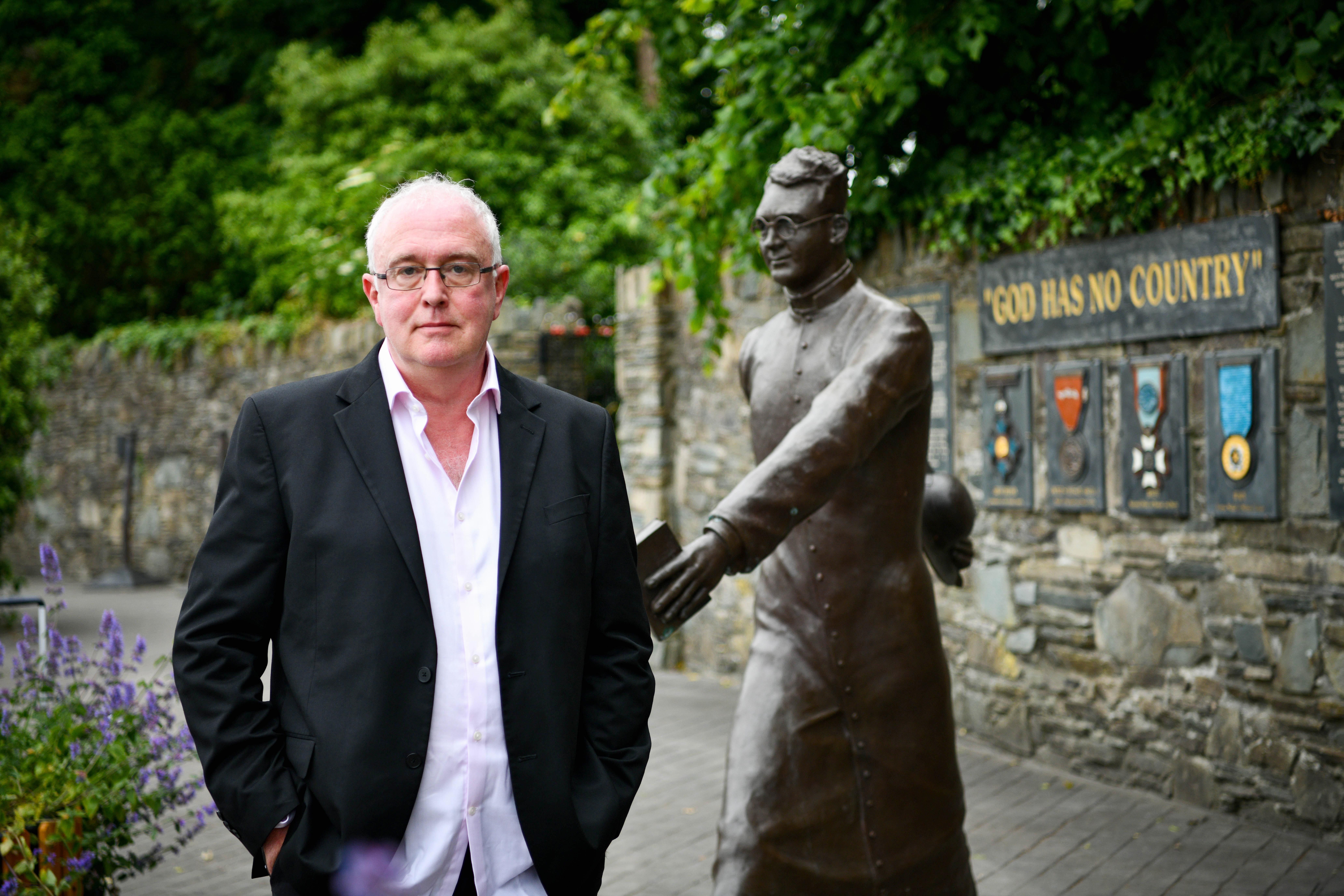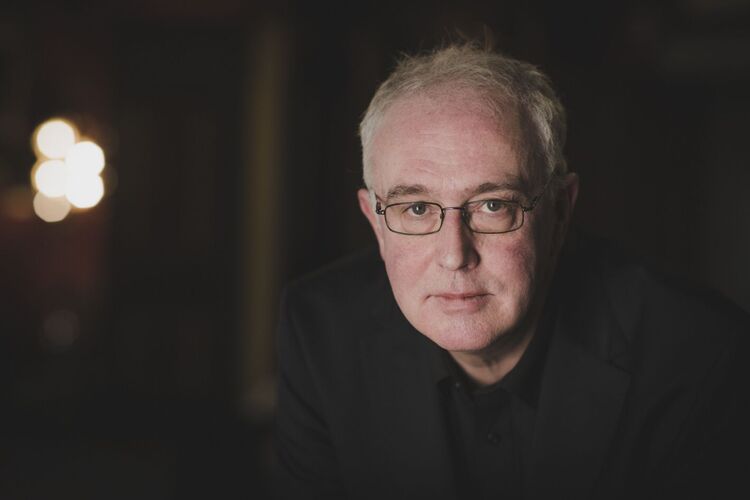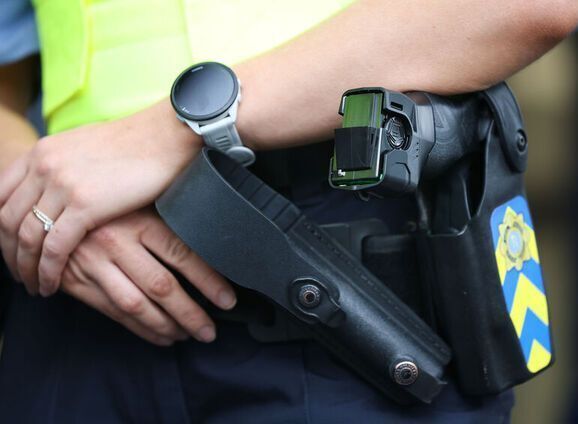Joseph O’Connor’s latest novel, “My Father’s House,” is inspired by the true story of Monsignor Hugh O’Flaherty, who risked his life in Italy during World War II by smuggling thousands of Allied prisoners and Jews to safety.
One of his accomplices operating the Escape Line in Nazi-occupied Rome and neutral Vatican City was Irish singer Delia Murphy Kiernan.
Malcolm Forbes, writing in the Washington Post, called O’Connor’s 10th novel a “potent blend of excitement, suspense and intrigue” and a “gripping World War II-set drama featuring the unlikeliest of heroes, one whom the reader roots for every step of the way.” Forbes declared it a “hugely satisfying book.”
Anna Mundow wrote in a Wall Street Journal review, “‘My Father’s House’ is primarily – and triumphantly — an intimate drama that illuminates both the fragility and the wonder of unlikely human connections forged in adversity and, in some cases, enduring for a lifetime.”
The Australian-born, New-York based novelist Peter Carey, twice winner of the Booker Prize, has said: “Few living writers can take us back in time so assuredly with such sensual density, through such gorgeous sentences.”
O’Connor, whose Famine-set “Star of the Sea” was an international bestseller, is the Inaugural Frank McCourt Professor of Creative Writing at the University of Limerick. His 2019 book “Shadowplay” was named Irish Novel of the Year.
He recently answered some questions from the Irish Echo about “My Father’s House.”
Is Rome a special place for you? Have you visited often?
It wasn’t a special place for me before 2019, when I began work on “My Father’s House”; in fact, I’d only been there once, for a few days, donkey’s years ago. But I started to go there a lot while researching the book and I fell in love with it. It’s hard not to.
What kind of sources did you consult to help recreate it in the war years?
I did what I usually do when researching a novel set in the past, which is to read every first-person account I can find. One important source was a book called “Rome Under the Terror” by M de Wyss, which I saw mentioned in the bibliography of a book by Matthew Kneale. De Wyss is a fascinating writer whose account is in diary form, very jagged and immediate. My sense is that M de Wyss is a woman but we’re never actually told. I named a Swiss journalist character in “My Father’s House” for de Wyss. Other sources included 1940s guidebooks and atlases of Rome, and official communications in the archive of the Irish Department of Foreign Affairs (or ‘”External Affairs” as it was then). And I was very fortunate to be granted access by the family to Hugh O’Flaherty’s unpublished papers, which are interesting in the range of interests and preoccupations, from boxing and gangster movies to gossip and theology.
The second city of the novel is London, is it fair to say?
Yes, I think London is an important city in “My Father’s House,” particularly the Bohemian and underground Soho scene of the 1930s and '40s but also, towards the end of the book, the swinging city of the 1960s. Several of the characters are expat Londoners caught up in Rome, but, more than that, London is seen as a place of comparative freedom and happiness. Frank O’Connor once remarked that an Irish person’s private life begins in London. I think there’s something to that. In my life, it was true.
Do you have a particular approach or philosophy when fictionalizing history? Are there writers that you feel do it really well?
Sebastian Barry and Toni Morrison are two of my favorite novelists, in part because of their skill at bringing the past to vivid life. I think the trick is to write about the past as though it were the present. Which it often is.
You did a biographical study of poet Charles Donnelly [who was killed in the Spanish Civil War] early in your career; now you’ve taken on another anti-fascist hero in Hugh O’Flaherty. What drew you to him?
I can’t remember the first time I heard the story of Hugh O’Flaherty but I think it might have been in Listowel, Co. Kerry. I’ve been attending the world-famous Writers’ Week on and off for 30 years, since my very first efforts at writing. At some point, late one night, someone told me about Hugh and the Escape Line he organized and led in Rome during World War II. Over the years, I researched and read more about him. I was always more amazed by his legacy. Born in republican Cork, brought up in Kerry, he came of age around the mistrust of England and in particular, English soldiers, that was one bequest of the Black and Tans. Yet he came to live insistently by his own moral code, even when faced with the threat of death, and at the risk of being ostracized by his Vatican superiors.
In siding with the British prisoners to whom he was called to minister in the fascist prisoner-of-war camps in Italy, and in assisting thousands of them to safety when they escaped and fled into Rome, O’Flaherty revealed himself as a person who wouldn’t blindly follow orders, whether they came from friend or enemy. Complaints were made about him by the Irish government, whose policy was strict neutrality, but he ignored them, saving 7,000 escaped British and American prisoners from death.
Irish anti-fascists are a bit obscure, are they not?
A little bit of obscurity was probably useful at the time since being seen as a leftie wasn’t a good look in Ireland. My father remembers leaflets coming through the door when he was a kid in the Liberties of 1940s Dublin, saying “Don’t Vote For the Red O’Riordan,” meaning Michael O’Riordan of the Communist Party, who had fought in Spain during the Civil War. Limerick’s Jim Kemmy, who died only 25 years ago at age 61, was regularly denounced as a Communist. It wasn’t the virtue-signalling age that we’re living in these days, where in certain circles “More Radical Than Thou” is the watchword.
Delia Murphy Kiernan, likewise, hasn’t been that well-known for her activism in this regard.
Delia was a really remarkable woman. In a sense, she was the closest thing 1940s Ireland had to a pop star, going on tour, making records of traditional ballads. Again, she probably kept her activism quiet on purpose. Hugh O’Flaherty himself didn’t talk much about his wartime activities. As far as I’ve been able to ascertain, he gave only one interview where he addressed any of that, and my sense is that he did it to get the subject off the agenda. With Delia, I think her situation would have been complicated by the fact that she was married to the senior Irish diplomat in Rome and, as such, should not have been working with either side in the war. But she was admirably disobedient in that regard, and in others.
Delia is a colorful character in the book and there are others, but lots of people get their one-liners in. Your trademark comic touch – most other writers of literary fiction are rather serious – seems all the more vital here.
Well, a novel that’s going to have darkness also needs to have a bit of light, otherwise it won’t work. Humor is one of the ways you can add texture and nuance to a piece of prose. Also, it was a survival mechanism for people in war, as it still is.
World War II is slipping more fully into history. Do you have thoughts about that as a writer and as a student of history?
In one sense, it’s true that World War II is not the preoccupation it once was, although books on it continue to appear all the time. My view is that it should never be permitted to disappear from the discourse. When I was a child, people used to say that fascism’s days were numbered, that religious hatred and ultranationalism would all disappear, that no electorate in a civilized country would ever again elect a leader who would deny the results of elections. So there you go. Unfortunately, we need to keep thinking about how this stuff happens.
The novel is also a portrait of the Catholicism of the time. The monsignor, for instance, goes to confession where he is given a penance of five decades of the Rosary and asked to pray for the conversion of Russia.
It’s an expression I can remember my own grandparents using, as recently as the 1970s, sometimes with a slight touch of the sardonic. If you hit your thumb with a hammer or didn’t get picked for a team, they’d say “Offer it up for the conversion of Russia.” To this day, I have warm and deeply treasured memories of my uncle Eamon’s car running out of petrol outside on the road where my grandparents lived. Told by his father to offer up the inconvenience for the conversion of Russia, Eamon responded under his breath: “I’ll Russia you in a minute. With my boot up your hole.” He was the black sheep of the family, of course.
It would be nice to see a screen adaptation. I’m thinking miniseries. Who would play Hugh?
I do have some thoughts about who could play Hugh and the other members of the Escape Line, but I will keep them to myself for the moment.
What’s next up for you?
“My Father’s House” is the first part of a trilogy, and I am working on the second part now. It’s called “The Operation.” The final part will be entitled “Legal Tender.”









